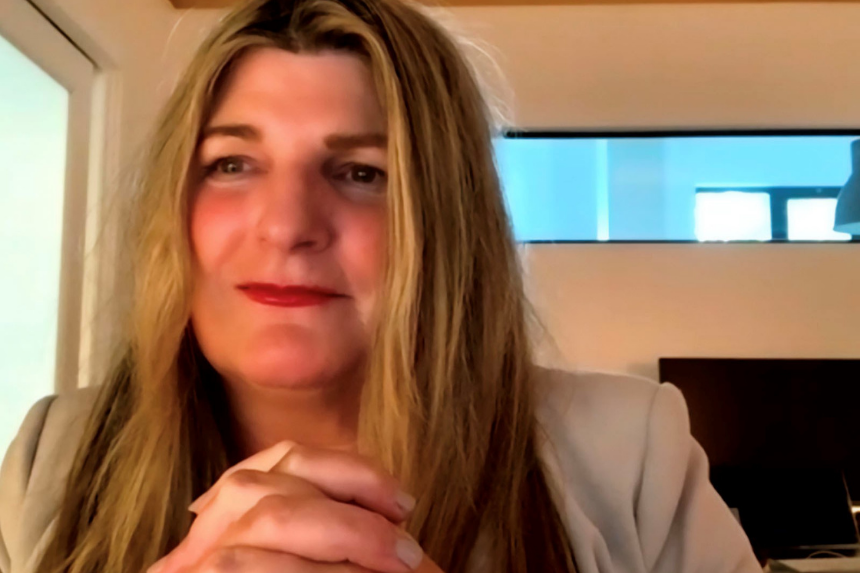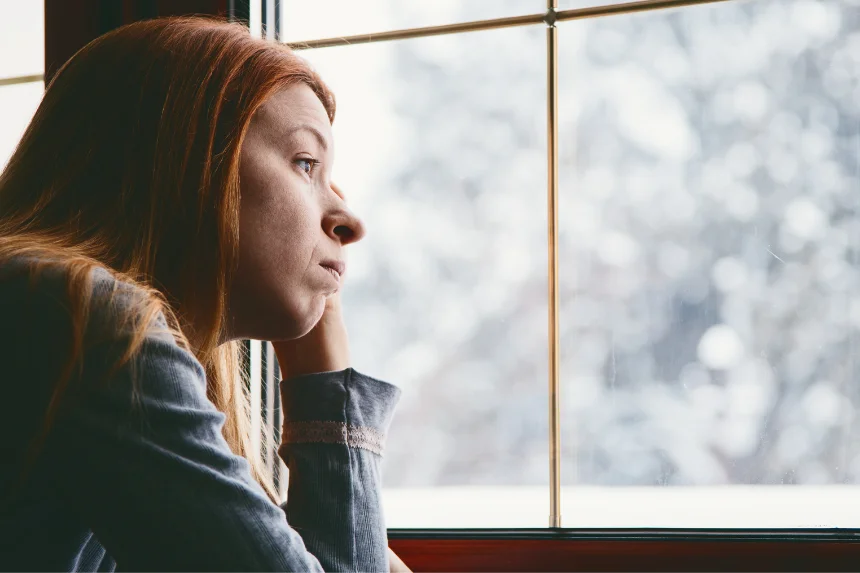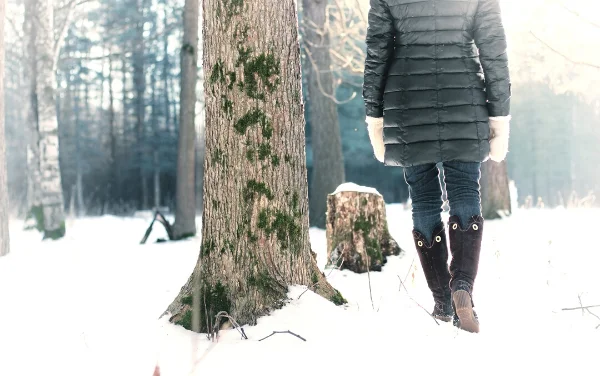“My mother belongs to that generation of women who had children and didn’t necessarily make the choice to have them. She is someone who didn’t know what to do with her children. Perhaps if it were her choice today, she would have decided not to have any. I think we were loved in her own way. It’s had some special results. My mother is not my best friend, she never has been, and is still not today. Except that now, I have no choice but to become intimate with her. It’s not for the fun of it, and it’s not my choice. It’s an obligation and a duty, with all that it entails.”
“This is the case for many people. It’s so taboo to talk about this disease, to talk about caregiving, to talk about the bond we share with others, that we get the feeling that it doesn’t bear any asperity or anomaly. But everyone’s family stories are complicated, complex, unique... Until old age, it continues to be special, it changes a little, but it can’t be an epiphany all at once. It was always difficult with your mother, and now, all of a sudden, everything should be fine? That’s not the way it happens.”
“[...] My father died within a short period of time. Except for when he was in palliative care in the hospital, my mother did not have to take care of him in sickness. He covered for her and took care of the household. You could see the decline, you could tell it was Alzheimer’s. When he passed away, the house quickly became a mess. My father did everything: the shopping, the cleaning, the housekeeping, the tax returns, he went to the post office, everything! He had her covered in every aspect of her life and illness, and it never seemed to be too much.”
“My sister and my husband and I were slowly discovering everything that Dad was doing. The house was no longer a good place to be. Soon, we arranged to have a cleaning crew come in. She kicked them all out: ‘No one’s coming in here!’ She finally agreed to take home delivery of her medication. I would go grocery shopping, bring things in, clean out the fridge, cook for her, only to find out that she wasn’t eating and everything was getting mouldy. She would buy a lot of milk at the corner store and it would sit in the fridge. It didn’t make sense anymore...it was becoming unsanitary, dangerous and inefficient. The problem for many seniors is that they have a home that is worth a certain amount of money, but they are only receiving an old age pension. The house would have needed major work, replacing the roof, taking care of the house and the huge yard. Of course, my parents weren’t doing anything anymore, and neither my sister nor I had the time to deal with it. My mother refused any outside help.
She couldn’t stay there anymore. We started thinking about a seniors’ residence. If we sold the house, she would be able to afford to go to a residence.”
“She thought she could do everything. We booked the services of a residential broker who helped us a lot to navigate the steps, guide us, convince us that we were not the only ones going through all this, that we had to visit residences with my mother. The broker made us realize that the disease would continue its course. My mother has only moved twice in her life. The idea of moving was something life changing... There was no way we were going to take her out of one residence and into a second. There had to be supportive care in the same residence. That was one of the first criteria.”
“[...] She lost a lot of her grip on reality, but one of the things that doesn’t get lost is the awareness of your social standing. It’s fascinating. You come from a really modest background, you never had much money. Her house was in an emerging neighbourhood, so she got a very good price for it and was able to afford a luxury residence. I had found a residence on the edge of the Rivière des Prairies, that provided care. Beautiful residence, beautiful lobby, beautiful apartments, library, etc. When she visited the place [...], she was walking along the walls, she was feeling bad. With her Alzheimer’s, she said, ‘I don’t belong here.’ These were retirees younger than her, obviously from a different social background. She felt out of place. She would have felt treated like a pauper. After that, we changed our approach, we visited some of the more modest residences that were very good, with all the services. This was a better atmosphere. [...] I benefited from the social elevator. She always felt this gap between her and me: ‘Oh yes, we know that you can afford a beautiful dress! A very proud side, but also very judgmental... There are many layers of sensitivity and viewpoints she has abandoned. But, in the choice of the residence, it caught up with her.’
“There was a lot of anger. Going to see her really gets me all worked up. I’d better not have an article to write or some intellectual work to do after a visit, because to see her being so nice to me, when she’s not someone who’s been nice to me, not at all... To see her being so nice... She has forgotten that whole upsetting relationship.
For her, it’s forgotten, for me, it’s not.
I can’t blame her, because I see a sick, decrepit woman who obviously doesn’t have an ounce of malice left in her. It’s quite something. I’m always afraid she’ll be mean, but I know that's all in the past.”
“It’s not pleasant to visit her. During the pandemic, I was the only one allowed to go. I went to see her from her balcony. I never cut off contact, because I knew very well that if I didn’t go... You wouldn’t do that to any person, especially not your mother. I return to see her every week. I’m that kind of caregiver: she gets all the care she needs, I don’t help her eat or do anything else. I buy her clothes and things that improve her quality of life. It’s a duty to go, with all the unpleasantness and responsibility that comes with it. Otherwise, she would be alone. So I have to go. It’s more difficult for my sister, who works in the cultural industry. The agreement is that when I go on vacation, she goes. It’s not pleasant for either of us.”
“It’s been a while since my mom was evaluated. The disease is progressing more slowly. You see mostly a declining woman, whereas she was a vigorous woman who walked, mowed her lawn, gardened. Now she is frail, fragile, out of breath. You see a 93-year-old woman and old age before you see the disease.”
“I learned that meanness can leave you, at some point. My grandmother and my aunt were affected. All the harsh, hard nature of these women was exacerbated by the disease. I always thought that this would happen to my mother, who was not particularly nice. The opposite happened! The animosity left her, which is very unusual. It is strange how the disease evolves.”








